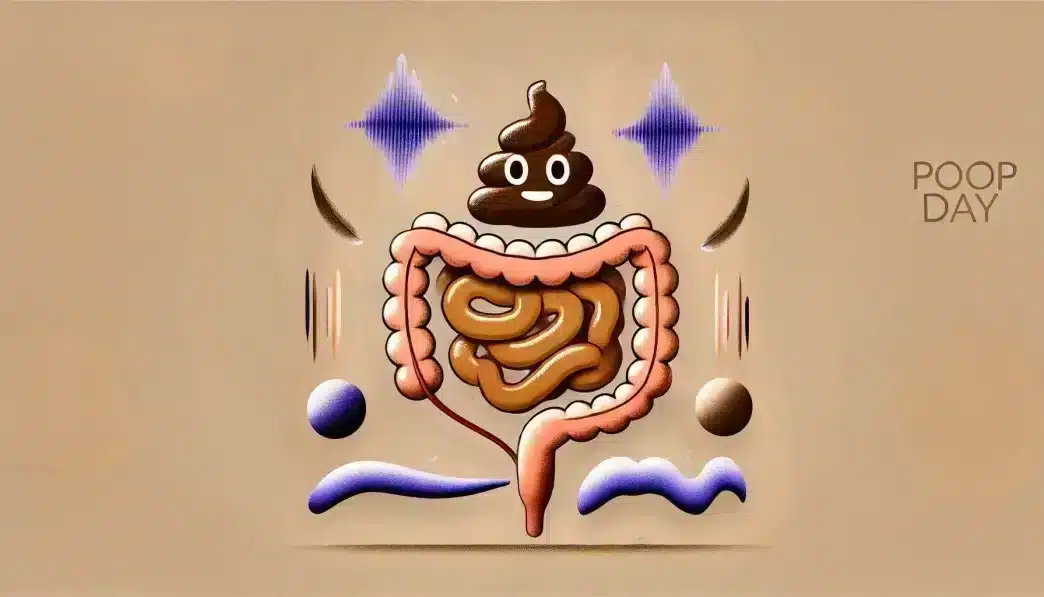What is National Poop Day in the Netherlands?
National Poop Day, known in Dutch as Nationale Poepdag, is observed annually in the Netherlands to raise awareness about the importance of digestive health and stool monitoring. Organized by the Maag Lever Darm Stichting (MLDS), the Dutch Digestive Foundation, the day encourages people to recognize how their bowel movements can indicate overall health. By breaking the taboo around discussing stool, the campaign aims to promote early detection of digestive issues and encourage a healthier lifestyle.
National Poop Day is an opportunity for individuals to learn more about their digestive system and take proactive steps toward better gut health. The observance highlights the connection between diet, hydration, exercise, and regular bowel movements while encouraging open discussions about topics often considered uncomfortable.
History and Origin
The MLDS initiated National Poop Day to make people more aware of their stool and how it reflects their overall health. Many digestive disorders, including colorectal cancer and irritable bowel syndrome (IBS), can show early warning signs through stool changes. However, due to the stigma around discussing bowel movements, people often ignore or avoid these signs.
By dedicating a national day to stool awareness, MLDS hopes to normalize conversations about digestive health and encourage people to take action when they notice irregularities. The observance typically falls on the second Wednesday of April, aligning with broader health campaigns that focus on prevention and well-being.
Who Observes National Poop Day?
- Healthcare organizations: Medical institutions, gastroenterologists, and general practitioners promote the importance of stool health and encourage check-ups.
- Educational institutions: Schools and universities may include discussions about digestive health in health classes or awareness events.
- Media and advocacy groups: Public health campaigns and media outlets use the day to share facts about digestive health and break the stigma around discussing bowel movements.
- General public: Individuals participate by learning about their stool, making dietary adjustments, and engaging in open conversations about gut health.
Slogans and Themes
National Poop Day revolves around themes of gut health, stool awareness, and early detection of digestive diseases. The campaign promotes the idea that talking about poop can save lives and encourages individuals to monitor their bowel movements for signs of potential health concerns. Common slogans include “Check je poep” (“Check your poop”), “Gezonde buik, gezonde jij” (“Healthy belly, healthy you”), and “Poop talks, listen to it”. The observance challenges societal taboos and highlights that digestive health is a key aspect of overall well-being.
Colors, Symbols, and Patterns
Colors
- Brown represents stool and its role in digestive health.
- Green symbolizes health, well-being, and dietary choices that support digestion.
- Blue is associated with medical awareness and the importance of discussing health topics openly.
Symbols
- A toilet icon represents the everyday reality of bowel movements and the importance of monitoring changes.
- A magnifying glass over a poop emoji symbolizes the need for close attention to stool health.
- A checkmark highlights the importance of assessing stool consistency, color, and frequency.
Patterns
- Digestive system diagrams illustrate how food moves through the gut.
- Stool consistency charts educate people about different stool types and what they might indicate about digestive health.
- Healthy food symbols emphasize the role of diet in maintaining a well-functioning digestive system.
How to Observe National Poop Day
- Take the “Check Your Poop” test: The MLDS provides an online tool to help individuals assess their stool health and learn what changes may indicate.
- Attend health awareness events: Hospitals, clinics, and wellness centers may host workshops or offer free consultations on digestive health.
- Engage in open discussions: Talk about poop with friends, family, or colleagues to help reduce stigma and encourage awareness.
- Eat for better digestion: Incorporate fiber-rich foods, drink plenty of water, and maintain a balanced diet to support gut health.
- Share information on social media: Use platforms to educate others about digestive health and normalize the conversation around stool awareness.
Most Used Hashtags
- #NationalePoepdag
- #CheckJePoep
- #GezondeBuik
- #Darmgezondheid
- #MLDS
Why is National Poop Day Important?
National Poop Day plays a crucial role in raising awareness about digestive health and stool monitoring. Many serious health conditions, including colorectal cancer, IBS, and food intolerances, can first present symptoms through stool changes. By encouraging people to pay attention to their bowel movements, the observance promotes early detection, better digestive habits, and ultimately, improved overall health.
The event also challenges social taboos around discussing poop. By normalizing conversations about digestion, it empowers individuals to seek medical advice when necessary and take control of their gut health. Digestive well-being affects daily life, and National Poop Day serves as a reminder that maintaining a healthy gut means maintaining a healthy body.
Features
Contact Info
April: Poop Day (Netherlands)
Why do you keep falling for the same type?
Read the article Lovemaps: the hidden blueprint of our love.
Did you not find what you were looking for? Let me help you find more.

